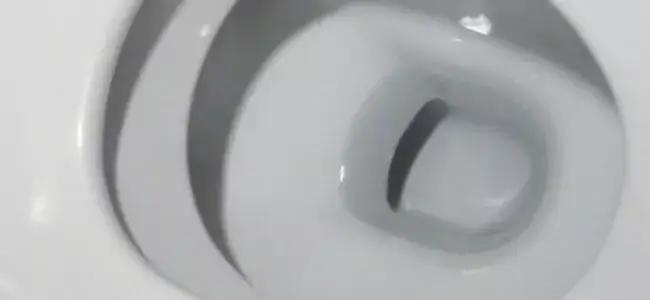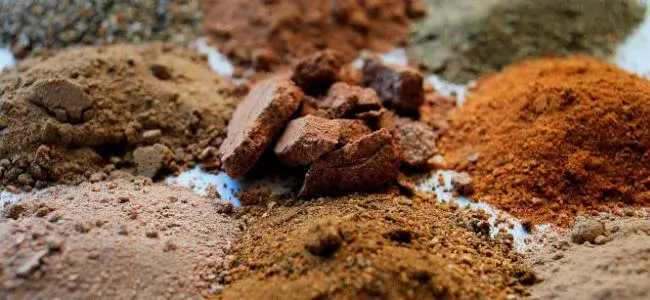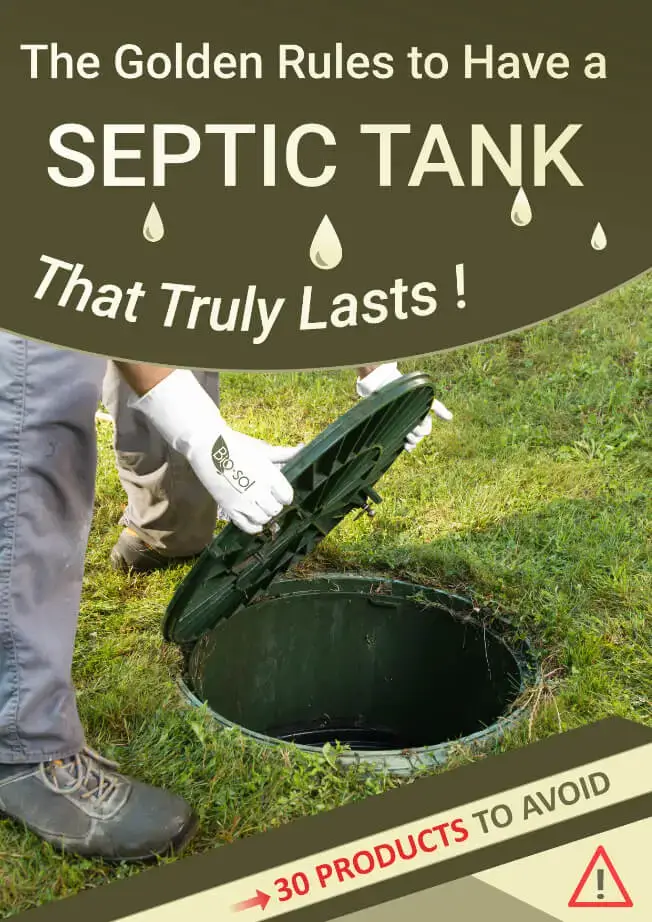Avoid flushing these if you have a septic tank

TABLE OF CONTENTS
Most homeowners wrongfully assume that their toilet can serve as some sort of garbage disposal. As a result, they end up flushing all manner of things in the toilets. Some of the things that are flushed down the toilet are actually innocent mistakes because homeowners think that is the right way to dispose of the products while in other cases, it is just a don’t care attitude. Whichever the case may be, flushing some of these things can result in septic system failure and it could cost you a fortune. We have rounded up some of the commonly-flushed products that you should never flush if you have a septic system.
Flushing Cigarette butts
Most smokers are afraid of starting a fire by throwing the cigarette butts in the trash can. They, therefore, resort to using the toilet because they figure the water in the toilet bowl will extinguish the cigarette. As noble as it might sound, it actually causes more harm than good. For starters, cigarette butts are made of tightly woven plasticized cellulose acetate, which is a nonbiodegradable material. The butts can, therefore, end up clogging the drainfield. Additionally, cigarettes often have hundreds of additives and some of these additives contain heavy metals like cadmium which are toxic to bacteria in the septic tank.
Hint: To solve the issue of accidental fires in the trash can, place your cigarette butts in an ashtray and then empty them a day later into the trash can.
Flushing condoms
There is a general misconception that condoms are biodegradable and it is, therefore, safe to flush them in the toilet. But the truth is that even latex condoms are not made purely from latex rubber. Synthetic materials like polyurethane are usually added in a bid to make them stronger and thinner. These synthetic materials that are added are what make condoms nonbiodegradable. If you keep flushing them in the toilet, they could eventually clog up the pipes in the septic system.
Flushing expired meds
Pharmaceuticals are made of very durable molecules and so they can easily resist the liquifying process in the septic tank and end up polluting the groundwater. Furthermore, expired meds are quite toxic and can kill the bacteria in the septic tank. For instance, antibiotics have been specially made to fight and kill bacteria and they will do just that in the septic tank. This is why all unused and expired meds shouldn’t be flushed in the toilet.
Antibacterial products
Antibacterial products like handwashes, kitchen cleaners, and toilet soaps have one main principle of operation – the killing of bacteria. Since the septic tank relies on bacteria to digest organic waste, you do not want these products to get there. it is therefore advisable to completely avoid using any antibacterial product. You can use the regular soaps instead or use safe DIY products like lemon juice.
Wet wipes/ face wipes
Wet wipes are increasing in popularity but they are also responsible for clogging up sewage pipes thereby causing backups. Some of the popular brands promote their wet wipes as flushable but you still shouldn’t flush them. Research shows that wet wipes account for up to 93% of matter causing blockages in sewers. To avoid being part of this statistic, dispose of your wet wipes in the trash.
Sanitary towels
Sanitary pads and tampons are not biodegradable. When you flush them, you risk clogging up the pipes. in addition, since bacteria can’t break them down, they will accumulate in the tank and contribute to sludge buildup. This will eventually cause your tank to fill up quicker than it should which means you might have to schedule a pumping sooner than you had planned.
Paints
Paint is composed of a pigment, a binder, a solvent as well as additives. There is a general misconception that water-based paint is safe for the septic tank but this is not true. The only difference between water-based and oil-based paint is the solvent used. Oil-based paints use turpentine but water-based ones use water as the solvent. However, all the other components are the same and so all paints are still toxic. Any leftover paint from your home improvement project should be properly disposed of at a hazardous waste facility.
Cat litter
Flushing cat litter can wreak havoc to your septic system and it should be avoided at all costs. Cat litter adds unnecessary solid waste into the tank and this contributes to sludge buildup. It can also clog up the pipes in the system thereby resulting in backups of wastewater. Cat litter also introduces the Toxoplasma parasite into the septic tank. This parasite will survive the septic tank and eventually contaminate the drinking water. Toxoplasma can cause serious health complications in pregnant women and persons that have weak immunity. This parasite has been known to cause brain damage and even death.
Dental floss
Because dental floss is small you might be tempted to just flush it in the toilet. But you shouldn’t. Dental floss is typically made from nylon or Teflon and these materials are not biodegradable. Apart from contributing to sludge buildup, dental floss can wrap themselves around hair, toilet paper, and other debris and therefore cause blockages.
Paper towels
Even though paper towels look like tissue paper to the normal eye, they are not made to degrade in water. Paper towels are made from hardwood pulp and are more absorbent than they are degradable and that is why they are used for drying hands and foodstuff. Flushing them down the toilet is, therefore, a bad idea because they will just settle down at the bottom of the tank and contribute to sludge buildup.
Plastics
Band-Aids, toys, and any other plastics shouldn’t be flushed down the toilet. Plastics can take up to 1,000 years to decompose so flushing them down the toilet is a really bad idea. Apart from the potential blockage that plastics can cause, they will also contribute to the buildup of sludge thereby causing the septic tank to fill up faster than usual.
Cosmetics
Some of the cosmetic products are made with toxic substances. They also contain metals like cadmium, zinc, chromium, and titanium which are not biodegradable. These metals will flow with effluent out of the tank, into the drainfield and eventually reach the groundwater, therefore, polluting it. All cosmetic products should be disposed of in the trash.
Conclusion
Pumping companies find all manner of unimaginable things when pumping septic tanks. If you want your tank to serve you for decades without any problem, you have to pay attention to the products you flush. As a rule of thumb, only flush toilet paper and human waste. Any other waste should be disposed of in the trash. When it comes to septic systems, it is always better to be safe than to be sorry.
OUR LATEST BLOG POSTS

Strange facts about septic systems
If you are a septic system owner, you might have heard all manner of myths. For instance, there is a common myth that throwing a dead cat in the septic tank can help rejuvenate bacteria and thereby make the septic tank more effective. But is this even true? In this article, we will not only answer that […]

Soils types and their impact on septic systems
SOILS TYPES AND THEIR IMPACT ON SEPTIC SYSTEMS However good your septic system is, it depends on the right soil type to complete the process of purifying the wastewater from your home. The soil type in the drainfield area will determine how well the effluent is filtered and if the water that is sent back to the […]

Avoid flushing these if you have a septic tank
Most homeowners wrongfully assume that their toilet can serve as some sort of garbage disposal. As a result, they end up flushing all manner of things in the toilets. Some of the things that are flushed down the toilet are actually innocent mistakes because homeowners think that is the right way to dispose of the products while in other cases, it is just a don’t care attitude. Whichever the case may be, flushing some of these things can result in septic system failure and it could cost you a fortune. We have rounded up some of the commonly-flushed products that you should never flush if you have a septic system.
PERFECT! I WOULD NEED...
Discover which products are the best for your needs!You can contact us at 1-800-378-6132 (toll free) or click on the following button to access our free online evaluation.
GET A QUOTE ONLINELog in to your account
Whoops! It happens sometimes...
CREATE A NEW ACCOUNT
CONGRATS!
You are now registered and ready to go. You can add and change any of your information on your client profile.
Unfortunately, we do not ship our products to the USA at the moment.
But, if you live in the United States and would like to order them, please fill in the form below. You will then be notified as soon as they are available in your country.
Thank you for your understanding!
Malheureusement, nous n’expédions pas nos produits en France pour le moment.
Mais, si vous êtes résident français et aimeriez les commander, remplissez s’il vous plaît le formulaire ci-dessous. Nous pourrons ainsi vous aviser aussitôt qu’ils seront disponibles dans votre pays.
Merci de votre compréhension!

-
30 products to avoid
-
What to replace them with
-
And everything you should know about your septic system
DOWNLOAD THIS FREE EBOOK!
Which email address should we send it to?


